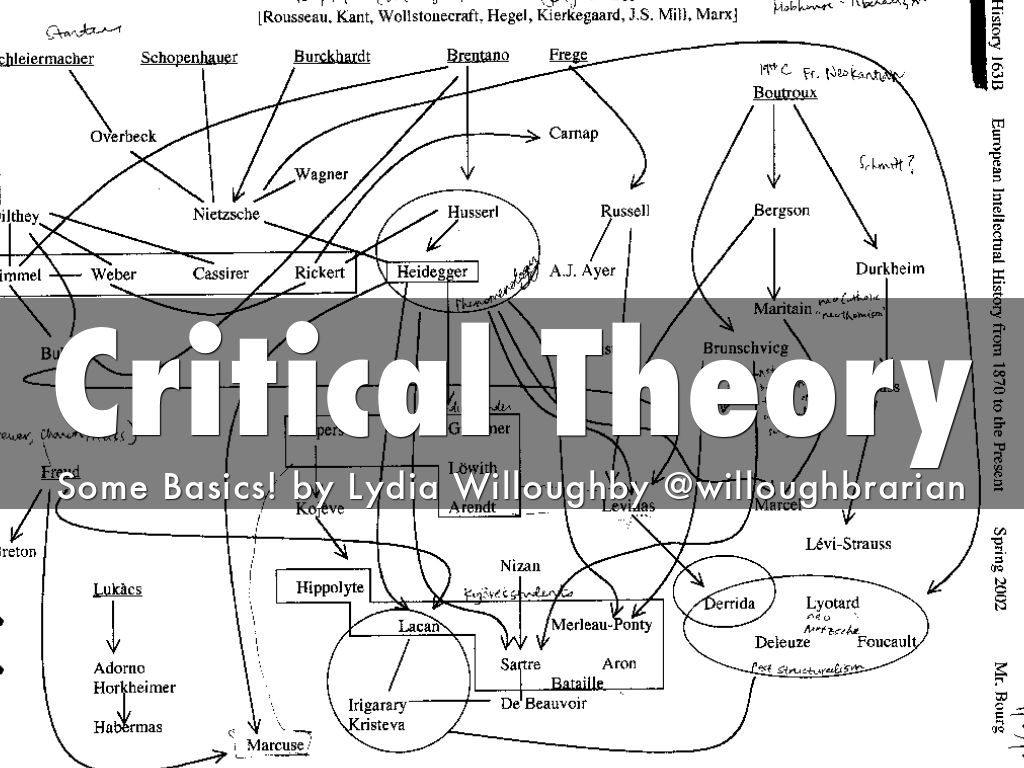Critical Theory
Critical theory is a foundational perspective from which analysis of social action, politics, science, and other human endeavors can proceed. Research drawing from critical theory has critique (assessment of the current state and the requirements to reach a desired state) at its center.
Critique entails examination of both action and motivation; that is, it includes both what is done and why it is done. In application, it is the use of dialectic, reason, and ethics as means to study the conditions under which people live. This entry describes the development of critical theory and its applications to a variety of research questions.
Although there are three identified stages of critical theory, all three conceptions have methodological value. There are some conceptual and foundational differences among the three stages, but there are questions as to which methodological specifics of each stage can be applied. The realm of social theory generally is extremely broad; any historical, political, economic, and technological elements can be studied in depth. Furthermore, conceptions of ideology can be applied to analysis in numerous ways. Therefore, the changes to critical theory do not represent suppressive variables. Because of the breadth of critical theory’s brush, many kinds of questions may be amenable to its application.
The observation consists of the living conditions of individuals, the kinds of work being done and the places where the work is done and spatial limitations that effectively limit movement, living space, and other kinds of existence. The observation is informed (shaped) by critical theory.
Opportunities for observation in the critical theoretic framework exist in the normal course of events. For example, a city may plan to rejuvenate a downtown area that has fallen into a state of deterioration. The plan could involve housing, retail business, office space, and other elements. Initially, the plan will likely be subject to review at several levels, including community response.
Individuals, who are other selves, apprehend their lived lives in some particular ways. For instance, spatial limitations might be perceived not merely as geographic boundaries but also as social and cultural boundaries. The meaning of perceptions can be comprehended by researchers only by inquiring of the individuals. Asking people what they believe is open to them and what is closed is the practical application of reason by the researcher. The interviewing process also opens the potential practice of reason on the part of the interviewees.
The second and third stages of critical theory, in particular, pay attention to people lived lives. The second stage is especially influenced by Habermas’s work in communicative action and discourse ethics. During this stage, a more pragmatic focus to inquiry is evident.
One factor that pervades all three stages of critical theory is the recognition that reason is possible and necessary for human action. The practice of critique depends both on reasons as a tool for the practice and on observation of practical reason. Reason as applied by the researcher entails the avoidance of engaging in human behavior and action as instrumentalities.
Analysis grounded in critical theory includes examination of ideological forces and statements that influence human action. Once again, this aspect of critical theory signals its Marxian basis; capitalism is a major ideology that has been, and continues to be, the focus of much attention. During the first stage, capitalism was the dominant perceived ideology. During the latter two stages, the study of ideology was broadened to include many aspects of race, gender, class, and other things.
The warnings that customarily apply to observational study, interviewing, and phenomenological research in general also apply with regard to critical theory. Errors or insufficiencies in those areas could have deleterious effects on the process and product of critique. Because critique is the intended outcome of investigation, it is essential that the researcher apply the theory with care and vigilance.
